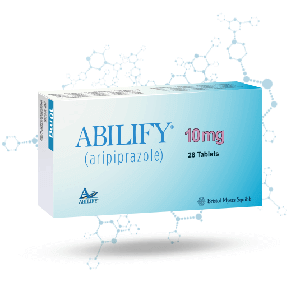Abilify Gambling Overview
 Abilify (generic name: aripiprazole) is a controversial antipsychotic drug with unusual side effects. Studies show the drug can cause compulsive behavior — especially Abilify gambling, shopping, binge eating and sex addictions. And thousands of patients taking this prescription drug say their doctors failed to warned about possible Abilify gambling side effects. As a result, their personal lives, professional lives, and economic status suffered drastically due to compulsive Abilify gambling behavior.
Abilify (generic name: aripiprazole) is a controversial antipsychotic drug with unusual side effects. Studies show the drug can cause compulsive behavior — especially Abilify gambling, shopping, binge eating and sex addictions. And thousands of patients taking this prescription drug say their doctors failed to warned about possible Abilify gambling side effects. As a result, their personal lives, professional lives, and economic status suffered drastically due to compulsive Abilify gambling behavior.
How Do Antipychotic Drugs Like Abilify Work?
Doctors prescribe Abilify to treat schizophrenia, bipolar I, autism and Tourette’s symptoms in adults and children aged 13 and older. It is also prescribed as an adjunct treatment for certain patients with a major depressive order.
There are two main antipsychotic drug categories: typical, and atypical. Sometimes, doctors refer to these as First Generation (typical) and Second Generation (atypical) antipsychotics. In most cases, doctors generally assume that atypical antipsychotics are less likely to cause adverse effects in patients. Some patients taking antipsychotic drugs experience unpleasant side effects, like:
- Tremors
- Paranoia
- Anxiety
- Repetitive movement disorders, like tardive dyskinesia and dystonia
But aripiprazole is the only drug in its class associated with extreme compulsive behavior, such as Abilify gambling addiction.
Abilify helps rebalance the dopamine and serotonin in your brain. Primarily, Abilify works on the brain receptors responsible for controlling your body’s motor functions, executive functions, and reward systems. Affected motor functions include tremors, muscle spasms, fainting, and tardive dyskinesia. Affected executive functions include things like moodiness, depression and memory. But it is Abilify’s effect on your reward systems that really sets it apart from other antipsychotics in its class. In other words, Abilify patients may experience a true chemical change from altering their brain’s typical serotonin and dopamine levels. They may lose the ability to discern risk and reward, which can lead to impulsive behaviors, including pathological gambling urges.
And many patients filing Abilify gambling lawsuits say they didn’t know about this possible risk until it was too late. In fact, Abilify’s drug label did not include compulsive gambling as a possible side effect until January 2016.
Off-Label Use Leads to More Abilify Gambling Addiction Cases Than Previously Thought
The FDA only explicitly approved Abilify to treat certain psychotic conditions in adults and children at least 13 years old. Still, doctors prescribe Abilify off-label for many different conditions, including:
- General anxiety disorder
- Social phobia
- Bipolar disorder in children
- Mental retardation in children
- Dementia
- Eating disorders
- Insomnia
- Obsessive-compulsive disorder
- Borderline personality disorder
- Post-traumatic stress disorder
- Substance abuse
With so many patients taking the drug off-label, Abilify gambling addiction could affect many more people than experts previously thought. Most conditions that doctors prescribe Abilify for off-label have no clinical or medical studies to support them. Family members and caregivers may not know that patients who develop an Abilify gambling problem even take the drug. This is especially dangerous, since it prevents them from spotting warning signs about risky behaviors such as Abilify gambling addiction.
Despite Earlier Warnings In Other Countries, FDA Didn’t Add Abilify Gambling Warning to Drug’s Label Until 2016
Japanese company Otsuka initially created aripiprazole back in 1988, but didn’t introduce it to the U.S. market until 2002. That’s when the company teamed up with Bristol-Myers Squibb and secured the U.S. Food and Drug Administration’s first approval. The FDA later approved Abilify in 2006 for bipolar disorder and major depressive disorder, then Tourette’s and autism in 2007.
Soon after launch, patients reported compulsive Abilify gambling behavior and sex addiction so severe that some individuals attempted suicide. In 2012, the European Medicines Agency updated the drug’s label to warn consumers about potential Abilify gambling and suicide risks.
In 2014, Canada added the same Abilify gambling warning to all prescription labels, pamphlets and drug packaging. But the FDA failed to protect American consumers until May 3, 2016. This could be due to Abilify’s exceptional U.S. sales Between April 2013 and March 2014, Abilify sales generated revenue totaling nearly $6.9 billion in the U.S. alone. That’s more than any other prescription drug in the country during that period.
The FDA’s 2016 warning stated “Compulsive or uncontrollable urges to gamble, binge, eat, shop and have sex have been reported with the use of antipsychotic drug aripiprazole).” It goes on to say that, “these uncontrollable urges were reported to have stopped when the medicine was discontinued or the dose was reduced.” The FDA’s warning isn’t just for affected patients, however. The agency also called on doctors and caregivers to look for compulsive Abilify gambling behaviors in patients taking the drug. Anyone experiencing these urges should alert a medical professional immediately.
Thousands of Affected Patients File Abilify Gambling Lawsuits
While the FDA’s warning alerted patients and caregivers about these strange behaviors, for many, it came too late. Thousands already developed a serious Abilify gambling problem without any warning that the drug was to blame. As a result, affected victims can file Abilify gambling lawsuits against both drug makers for failing to warn them first.
Brad and Denise Miley of Maple Grove, MN filed their Abilify gambling lawsuit in January 2016. They claim Brad’s Abilify use caused his uncontrollable urges to gamble, totaling more than $75,000 in losses for the couple. Ohio resident Patrick Parks filed a similar Abilify gambling lawsuit in November 2016. After his doctor prescribed Abilify in 2013, Parks “began compulsively gambling shortly thereafter.” Once he stopped taking the drug, he stopped gambling. “Plaintiff has suffered the following losses: monetary losses in excess of $75,000, loss of financial stability, and other mental, physical, and economic losses. The injurious impact of Abilify on Plaintiff’s brain constitutes a physical injury.”
Thousands of individuals reportedly suffered uncontrollable urges to shop, gamble, eat and have sex only after taking Abilify. With no warning that Abilify gambling addiction was a possibility, these plaintiffs must now seek justice and compensation in court.
Check eligibility for compensation.
If you or a loved one developed compulsive gambling behavior issues after starting Abilify, you may be entitled to compensation from the manufacturer. Request your free case evaluation now to see if you may qualify.

